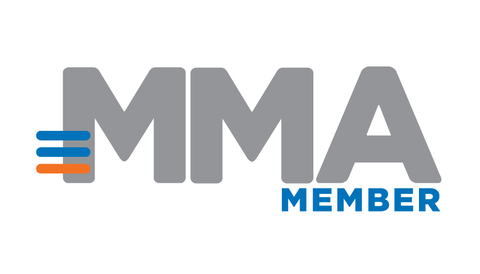February 26, 2009
A number of retailers have begun moving into the mobile sphere, offering mobile websites (mobisites) as part of their service offering to consumers. It's a significant win for mobile technology in this country and retailers are starting to reap the benefits of being accessible from the mobile phone, says Eddie Groenewald, CEO of Multimedia Solutions.
“Two of our first big clients in the space were Makro (www.makrosa.mobi) and a number of stores in the JD group (for example www.morkels.mobi), which have used mobisites and MMS campaigns to reach out to consumers,” he says. “Subsequently, retailers like Ellerines, and Ideas Clothing are signing up for mobisites as a way to reach out to current and potential customers.”
The move is not surprising as the retailer sector is the largest part of the economy that services consumers directly.
Retailers realised that with approximately 30 million mobile phone subscribers in the country, the mobile channel is the biggest channel available to market their services to. Mobisites and MMS campaigns have therefore become a growing part of their marketing strategy, Groenewald says.
The challenge of traditional media:
Traditional mass media is increasingly becoming a hard-sell for retailers because of the lack of measurability against their bottom line.
While advertising is still built on one of its founders, John Wanamaker, and his often quoted truth, “Half the money I spend on advertising is wasted. The trouble is, I do not know which half,” the advertising industry never had the luxury of the measurability which is now being offered by mobile technology.
In addition, advertising budgets are under pressure in tough economic conditions, Groenewald says.
“Many retailers are decreasing or completely cutting out TV and radio advertising from their strategies because of the cost and the inability to justify that spend again their bottom line. Other channels are also being questioned for the same reason,” he says.
Measurability:
However, most retailers have responded differently to mobile because of its measurability. The most important thing about the mobile channel is that people are linked back to an identifying mark - their mobile phone number.
While retailers have often looked to build a personal relationship with their clients by communicating first by direct mail and then by email, Groenewald says neither of these channels have had the power that the mobile channel has when it comes to reach and response from consumers.
“With MMS, the base is verified with the cellular network before it is sent out. That means that there is no wastage upfront. Furthermore, retailers can monitor campaigns as they are sent out, seeing how the campaign penetrates the base, and get a full report-back afterwards including when messages were delivered, who opened them and which recipients unsubscribed,” he says.
Retailers have also been able to measure the viral spread. For example, many retailers' MMS campaigns have call-to-actions and competitions within the MMS. What the retailers have found is that they get responses from consumers who were not on their base, because the MMS's were forwarded on to other people who then respond.
“Mobisites provide even more measurability because when the person visits the site from their mobile phone, the mobisite picks up the mobile phone number. Retailers can therefore see exactly who is visiting their site and what they are looking at,” he says.
Traffic can be increased to the mobisite through MMS campaigns and advertising on mobile advertising networks like Admob.
Benefits:
Once retailers have consumers on the mobisite, they can display promotions to them; offer a payment option; provide contact details to stores; or enable them to apply for a loyalty card, Groenewald says.
“The concept can be extended using mobile business intelligence. This is done using customers' mobile phone number as a reference and profiling their usage of the site. Content and even special offers can be offered to consumers based on who they are and where their interests are,” he says.
So for example, a kitchen accessory special can be offered to one consumer and office equipment special can simultaneously be made to another consumer.
Unlike the mass media, mobile marketing empowers retailers to connect with consumers, and consumers are able to show where their interests are, Groenewald says. Information can therefore be presented to them based on what they want and the chances of closing a sale are much greater because product is matched to need and thus a purchase occurs.
“It all boils down to the fact that mobile technology is far more accessible, interactive and measurable that any other channel, which is why retailers are moving aggressively into the space. This is opening up other technologies and services like mobile ticketing, loyalty programmes and location based services in the mobile space,” Groenewald says.
About us:
Multimedia Solutions is a mobile marketing company, providing a host of marketing, advertising, informational and educational solutions to our clients using mobile technology.
Not to be confused with a Wireless Application Service Provider (Wasp) or an advertising agency, Multimedia Solutions is a Value Added Service Provider. Launched in 2005, Multimedia Solutions has developed a number of mobile marketing solutions including a mobile marketing platform. The company has created mobile marketing solutions in the automotive, financial, cellular, FMCG and eventing industries.

